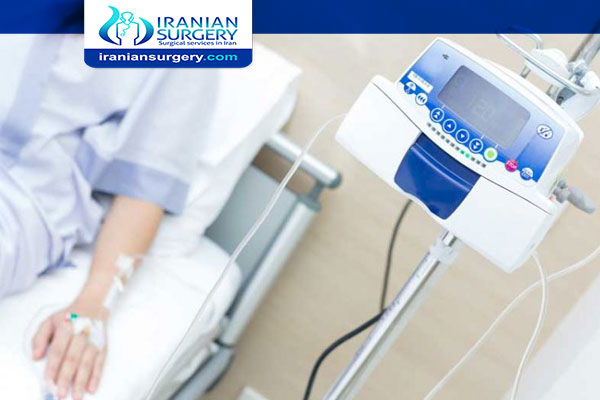Why does chemotherapy cause nausea?
Which combination would be appropriate for prevention of chemotherapy induced nausea and vomiting?
What do they give chemo patients for nausea?
What antiemetic is given before chemotherapy?
Chemotherapy induced nausea and vomiting
Chemotherapy-induced nausea and vomiting (CINV) is a common side-effect of many cancer treatments. Nausea and vomiting are two of the most feared cancer treatment-related side effects for cancer patients and their families. For over 30 years, chemotherapy-induced nausea and vomiting have been the most severe and troublesome symptoms for cancer patients receiving chemotherapy. Unresolved chemotherapy-induced nausea and vomiting can lead to metabolic disorders, dehydration, nutritional depletion and esophageal tears, and can reduce patients’ daily functioning and quality of life and interfere with treatment schedules. Despite the widespread use of antiemetics, chemotherapy-induced nausea continues to be problematic. Unlike vomiting, nausea is a subjective and unobservable phenomenon making it extremely difficult to accurately assess and treat. Current research suggests that management of chemotherapy-induced nausea should focus on treating the symptoms before they occur rather than after they develop. This review highlights evidence-based interventions for the treatment of chemotherapy-related nausea.
There are several subtypes of CINV. The classifications of nausea and vomiting are:
- Acute: occurring within 24 hours of chemotherapy.
- Delayed: occurring between 24 hours and 5 days after treatment.
- Breakthrough: occurring despite prophylactic treatment.
- Anticipatory: triggered by taste, odor, memories, visions, or anxiety related to chemotherapy.
- Refractory: occurring during subsequent cycles when antiemetics have failed in earlier cycles.
Read more about: Chemotherapy types
Read more about: Chemotherapy hair loss
Treating nausea and vomiting
- Drug companies have been developing anti-nausea medications for the past 40 years. Your doctor will decide which drugs to prescribe based on the type of chemotherapy you are getting and how much nausea and vomiting might be expected. Sometimes, patients receive anti-nausea drugs intravenously through a needle inserted into a vein. Other antinausea medications are available in pill or liquid form to take by mouth, as a skin patch or as a suppository (a soft cone- or cylinder-shaped capsule containing medication that dissolves in the rectum).
- After chemotherapy, you may also be given anti-nausea medications to take at home. It’s important to understand how these drugs should be taken. To prevent CINV, some medications are designed to be taken for several days, whether you feel nauseous or not. Others are meant to be taken only when you feel nauseous.
Why does chemotherapy cause nausea?
Your body sees the medicine as foreign. It sets off warning signals in your brain and digestive system. This flips the on switch in a part of your brain called the vomiting center. It puts out chemicals that make you queasy. Chemo can harm your digestive tract, too, which could also lead to nausea.
Read more about: cervical cancer risk factors
Read more about: Types of chemotherapy
Read more about: Chemo side effects
Read more about : Colorectal cancer surgery
Read more about: Cancer treatment
Which combination would be appropriate for prevention of chemotherapy induced nausea and vomiting?
Benzodiazepines are appropriate adjunct therapies to decrease treatment-related anxiety, and they are the preferred agents to treat and prevent anticipatory nausea and vomiting. dexamethasone and aprepitant are recommended against delayed nausea and emesis. Studies have shown that dexamethasone is the most potent antiemetic for prevention of delayed nausea and vomiting. Furthermore, aprepitant increases the efficacy of serotonin (5-HT3) antiemetics plus dexamethasone regimens to reduce both acute and delayed chemotherapy-induced nausea and vomiting during highly emetogenic regimens, such as cisplatin.
What do they give chemo patients for nausea?
When suffering from nausea caused by chemotherapy treatments, your doctor will prescribe anti-nausea medications to prevent or relieve nausea.
Likewise, your doctor may not prescribe any anti-nausea drugs because not all chemotherapy cause nausea and vomiting. However, if the chemotherapy is likely to cause nausea and vomiting, your doctor may prescribe one or more of the following common anti-nausea medications:
- Aprepitant (Emend®)
- Dolasetron (Anzemet®)
- Granisetron (Kytril®)
- Ondansetron (Zofran®)
- Palonosetron (Aloxi®)
- Proclorperazine (Compazine®)
- Promethazine (Anergan®), (Phenergan®)
- Netupitant-Palonosetron (Akyzeo®)
- Rolapitant (Varubi®)
- Lorazepam (Ativan®)
- Metoclopramide (Reglan®)
- Dexamethasone (Decadron®)
- Famotidine (Pepcid®)
- Ranitidine (Zantac®)
What antiemetic is given before chemotherapy?
Dexamethasone improves control of acute nausea and vomiting when given prior to chemotherapy, and continued administration of dexamethasone improves nausea and vomiting after highly emetogenic chemotherapy. It can also be given as an oral tablet for patients to take for the two days following chemotherapy to help minimise delayed nausea and vomiting.
Read more about: Colon Cancer Treatment
Read more about : Prostate Cancer Treatments Pros and Cons
Preparing for chemo treatments
- Take it easy.
- Don't compare your body to how it was before chemotherapy.
- Drink lots of water.
- Go for a walk every day, if possible.
- Try to eat something. Find foods you can keep down. Many patients recommend bland foods.
- Read the provided handouts regarding chemotherapy and its side effects.
- Some patients recommended trying a variety of things to help with side effects including pickle juice, flaxseed oil, fish oil, ginger ale and tea tree oil. Be sure to talk to your doctor about any products, minerals or supplements before you use them.
- Wear comfortable clothing. If you will be getting chemotherapy, it is best to wear comfortable clothing. If you will be receiving your chemotherapy through a vein in your arm, make sure your sleeves will allow good access past your elbow.
- Keep a chemo journal. Track your medical team members' names and the dates your chemo is administered. Between infusions, write down how much sleep you're getting, what you're eating and how you're feeling.
Read more about : Orchiectomy surgery for prostate cancer
Read more about: Chemotherapy drugs


